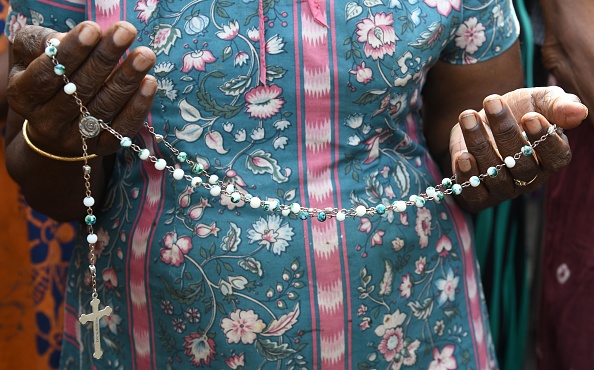
By: LekshmiSajeev
Sri Lanka began a day of national mourning on Tuesday (23) with three minutes of silence to honour more than 300 people killed in suicide bomb blasts that have been blamed on a local Islamist group.
Flags were lowered to half-mast on government buildings, and people bowed their heads and reflected silently on the violence that has caused international outrage.
The silence began at 8:30 am (0300 GMT), the time that the first of six bombs detonated on Sunday morning, unleashing carnage at high-end hotels and churches packed with Easter worshippers.
Shortly after the silence was observed, a police spokesman said the toll had risen to 310, with several people dying of their injuries overnight.
The first memorial services for the victims, among them dozens of foreigners, were planned for Tuesday, hours after the government imposed a state of emergency and said an Islamist group was behind the violence.
At St Anthony’s Shrine in Colombo — where scores died as they gathered for Easter Sunday prayers — a crowd of a few dozen people held candles and prayed silently, palms pressed together.
Some of them struggled to hold back tears and as the three minutes drew to a close, the crowd began to chant prayers.
Police said that 40 people were now under arrest over the suicide bomb attacks — the worst atrocity since Sri Lanka’s civil war ended a decade ago.
The attacks were also the worst ever against the country’s small Christian minority, who make up just seven per cent of its population of 21 million.
Investigators are now hunting for clues on whether the local Islamist group named as the chief suspect — National Thowheeth Jama’ath (NTJ) — received “international support”, said cabinet minister and government spokesman Rajitha Senaratne.
The spokesman added that it was not possible for such “a small organisation” to carry out such well-coordinated suicide strikes.
President Maithripala Sirisena’s office said there was intelligence that “international terror groups” were “behind local terrorists” and that he would seek foreign help to investigate.
